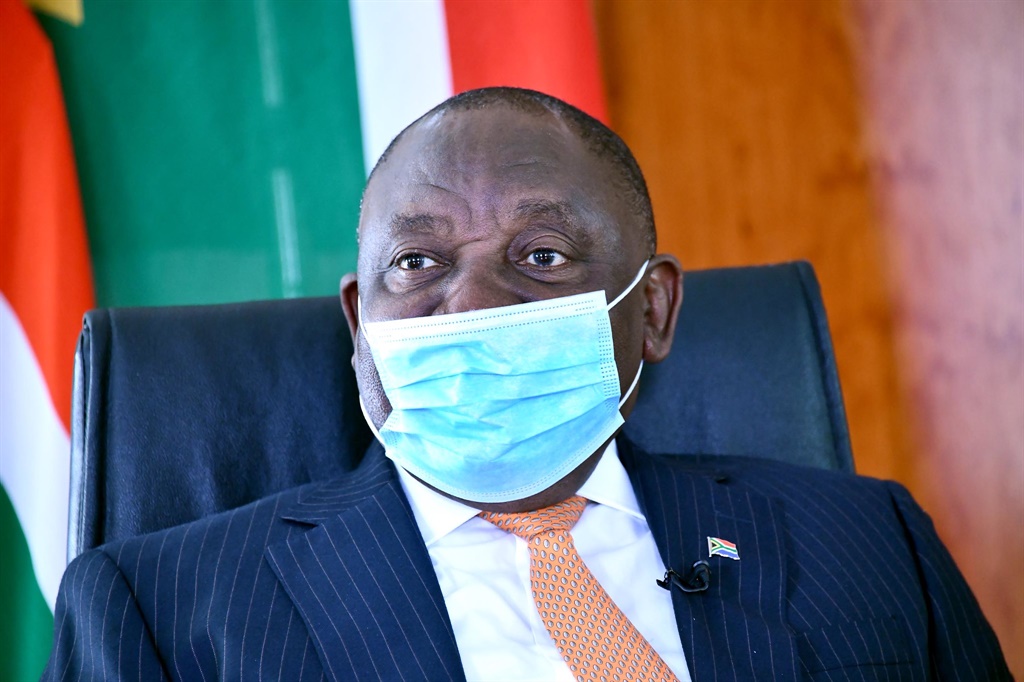
- Stricter lockdown measures have been imposed on residents in the Nelson Mandela Bay Metro as new Covid-19 infections surge.
- The other two coronavirus hotspots, Sarah Baartman District and the Garden Route, remain exempt from stricter measures - for now.
- President Cyril Ramaphosa urged South Africans to continue wearing masks, wash their hands and apply physical distancing as new infections surge for the first time since mid-August.
Nelson Mandela Bay Metro will face stricter lockdown measures as South Africa braces itself for a resurgence of new Covid-19 infections, President Cyril Ramaphosa announced on Thursday night.
At the same time, he urged South Africans not to travel for the holidays if they can prevent it.
The metro is the only one of three declared Covid-19 hotspots to face these restrictions. The government, for the first time, decided to apply the differentiated approach it announced right at the start of the pandemic, targeting hotspots while allowing the economy in the rest of the country to stay open.
The Sarah Baartman District that surrounds the metro, as well as the adjacent Garden Route, have both seen a resurgence of infections, but will not face a stricter lockdown - for now.
Ramaphosa's announcement came after extensive consultations with premiers, metro mayors and traditional leaders, and a meeting of the National Coronavirus Command Council on Wednesday.
Nelson Mandela Bay Metro residents will face a 22:00 to 04:00 curfew, and restrictions on the size of gatherings – a maximum of 100 people for inside venues and 250 outside – will apply.
Shops will only be allowed to sell booze from 10:00 to 18:00 on Monday to Thursday, while drinking in public spaces, such as beaches and parks, will not be allowed.
Initiation schools, which have for the first time been allowed to reopen with strict health protocols in place, will still not be allowed in the metro. "After tears" at funerals – traditionally the social gathering after a burial – are also banned.
Ramaphosa emphasised that these measures "are not meant to punish … residents" or intended to increase their hardships.
"These measures are needed to contain the spread of the virus and to save lives," he said.
Ramaphosa said a hotspot is determined with consideration to "the number of new Covid-19 cases per day, the testing rate within the population, the percentage positivity rate within the population, the number of active cases, the number of hospital admissions and the number of deaths".
State of disaster
He extended the state of disaster until 15 January and said the rest of the country would remain under Level 1 lockdown restrictions, which includes physical distancing and the wearing of masks in public spaces.
Ramaphosa emphasised the importance of keeping the economy open and pushing ahead with the country's reconstruction and recovery effort following the initial lockdown, which started in March.
He did, however, put a dampener on holiday plans by urging South Africans to remain alert and to avoid unnecessary travel and large social gatherings as these carry great risks.
"The summer season is traditionally a time for social gatherings, attending festivals and events, and socialising at weddings, religious gatherings and in both public and private spaces," he said.
"These social gatherings can be 'super-spreader' events that carry a huge risk for transmission of the virus."
Family gatherings should be kept small, in outside or in well-ventilated venues, with physical distancing and the wearing of masks as much as possible, he said.
"We must remember that, as much as we want to relax, this virus does not take a holiday."
We cannot return to the darker days of June and July, when transmission of the virus was widespread and the lives of our family and friends were at risk.
— Cyril Ramaphosa ???? #StaySafe (@CyrilRamaphosa) December 3, 2020
Just as we know that a second wave is possible, we know too that it is not inevitable.
He repeatedly warned that more people would become infected, and die, if Covid-19 health measures are not adhered to.
Since the middle of August, the rate of new infections was steady, below 2 000 new cases reported per day, but in the last three weeks this has changed, Ramaphosa said.
On Wednesday, 4 400 new infections were recorded in the country, the highest number since the middle of August, he said.
"The total number of hospital admissions is now over 5 800 nationally and is increasing."
Ramaphosa said the pandemic's toll had been heavy so far, with a total of 800 872 confirmed infections and 21 803 deaths attributed to Covid-19. The recovery rate is at 92%.
He likened the pandemic to a bush fire, saying flare-ups needed to be extinguished quickly before they turn into an inferno.
"We must change our behaviour now to prevent a resurgence of the virus and manage outbreaks wherever they occur," he said.
We know this was a long read and your time is precious. Did you know you can now listen to articles? Subscribe to News24 for access to this exciting feature and more.
